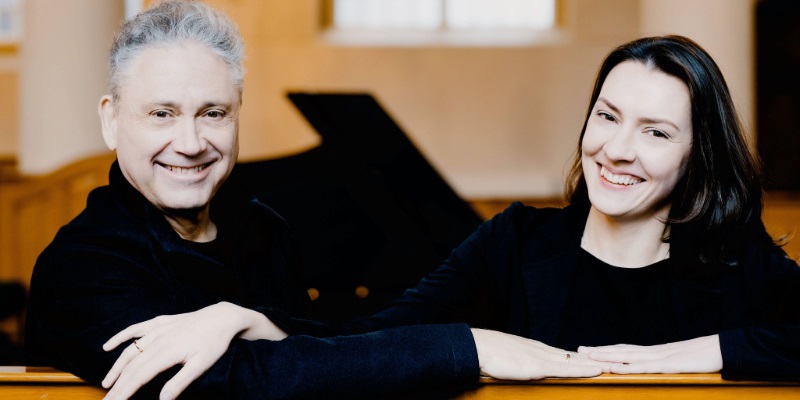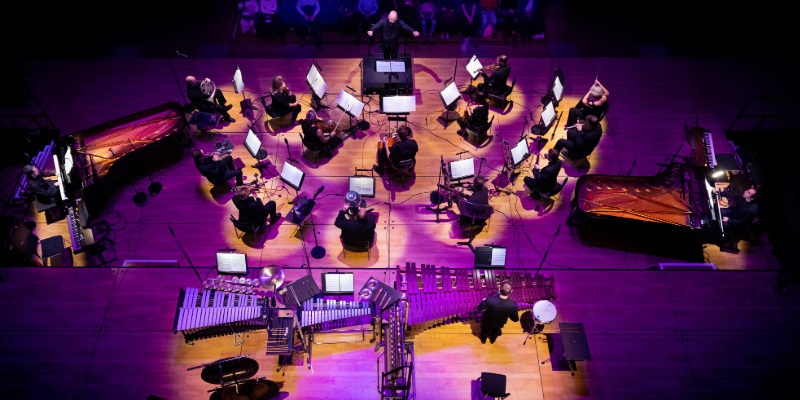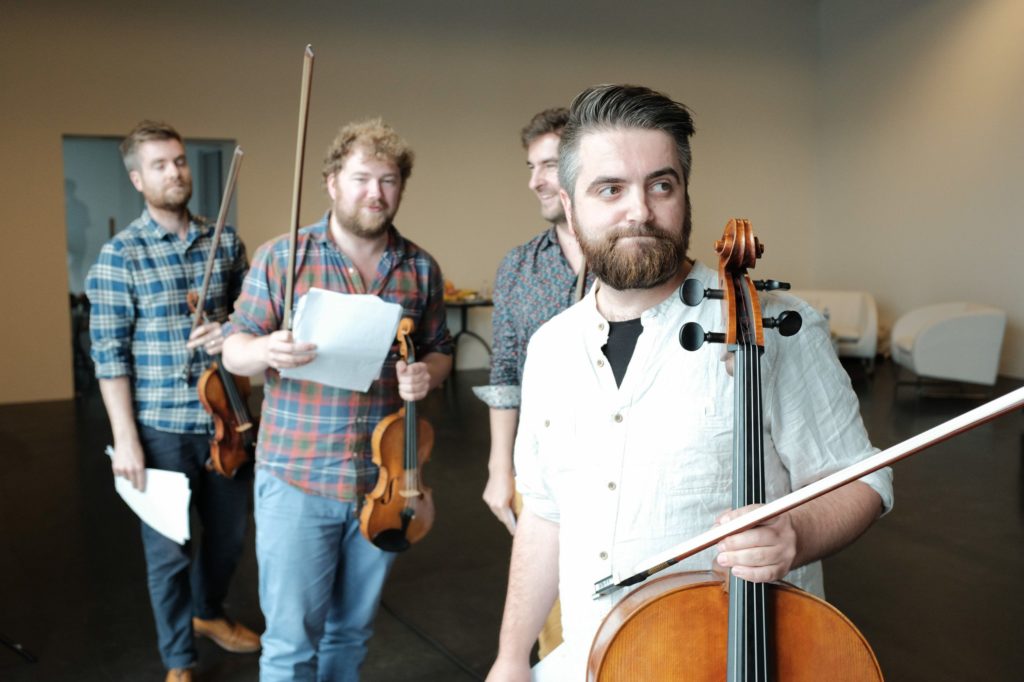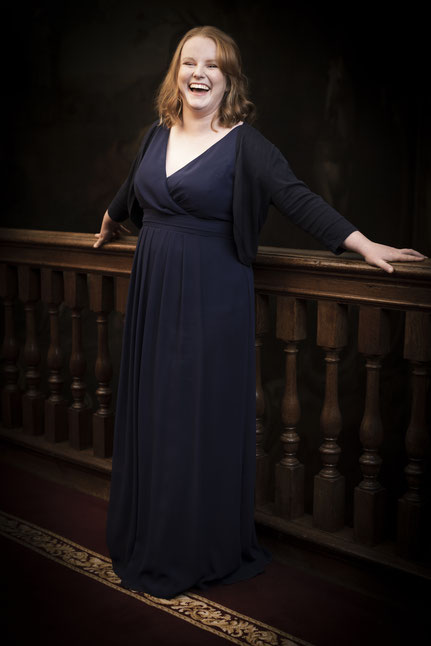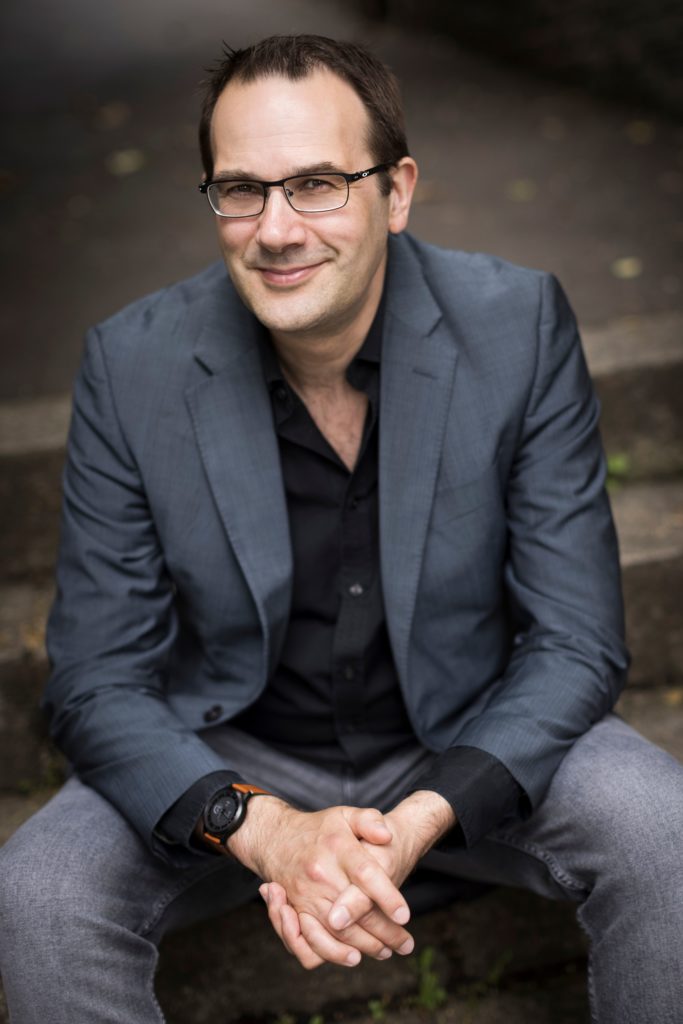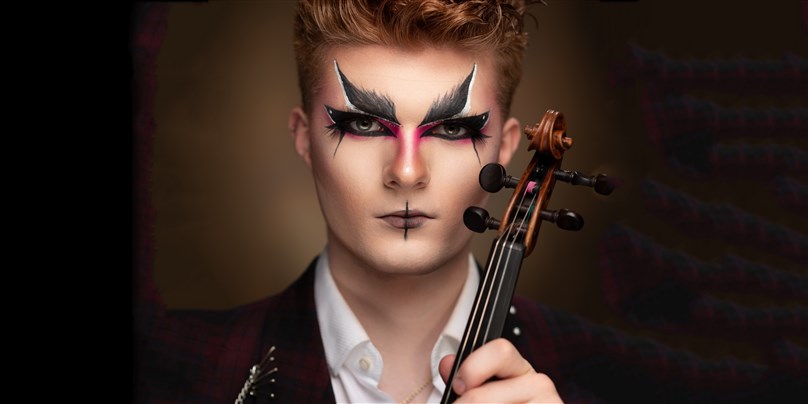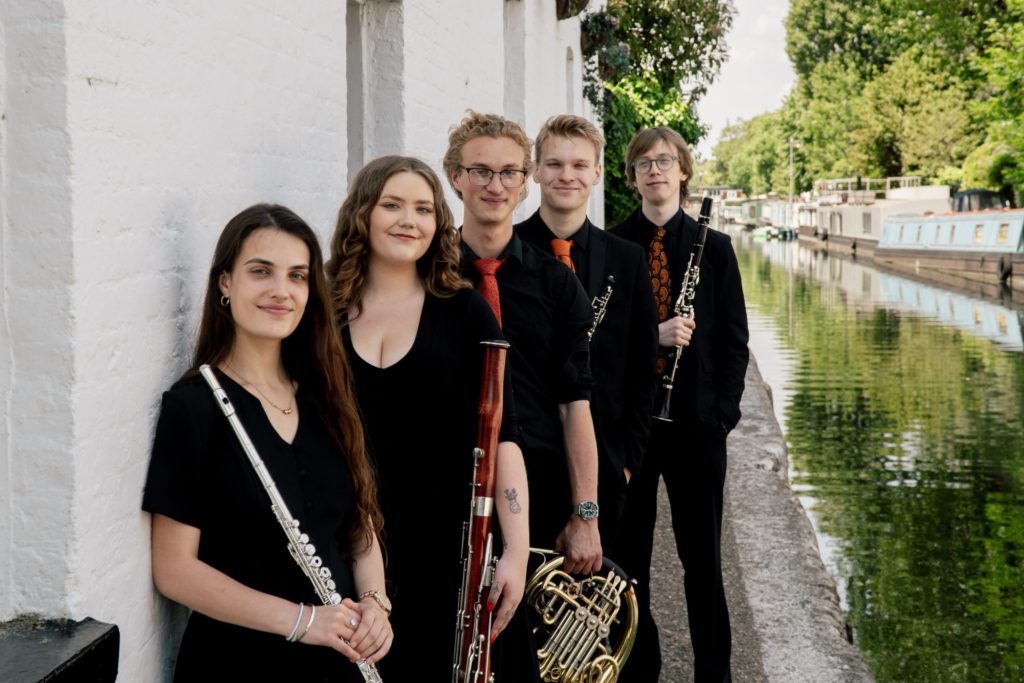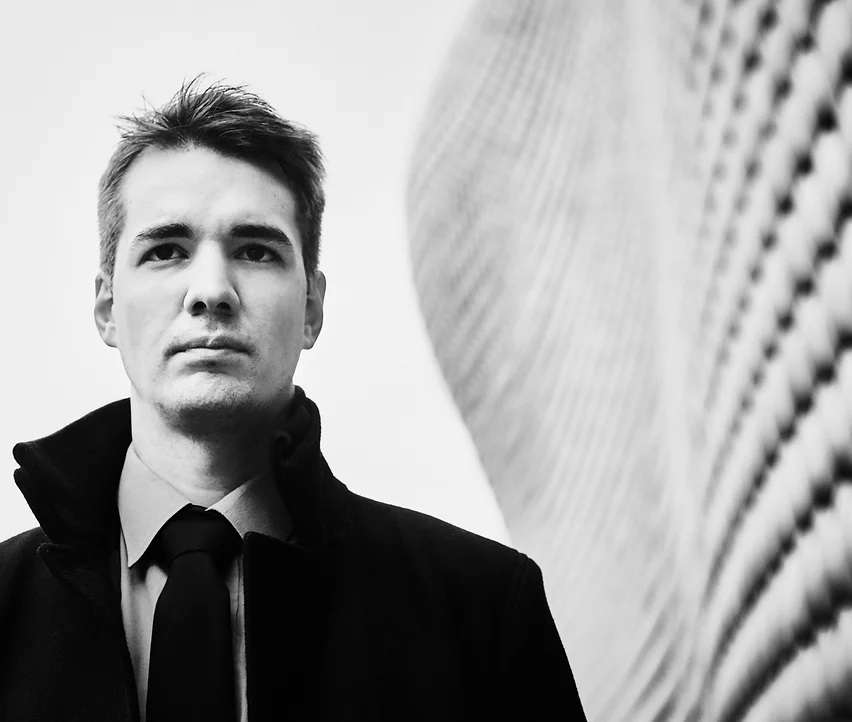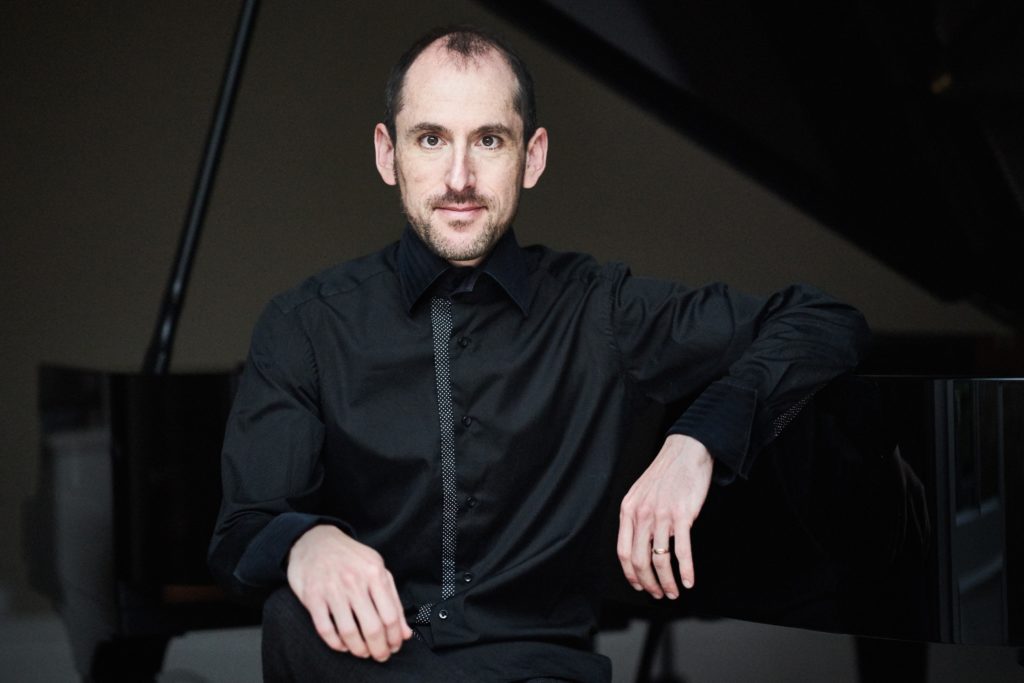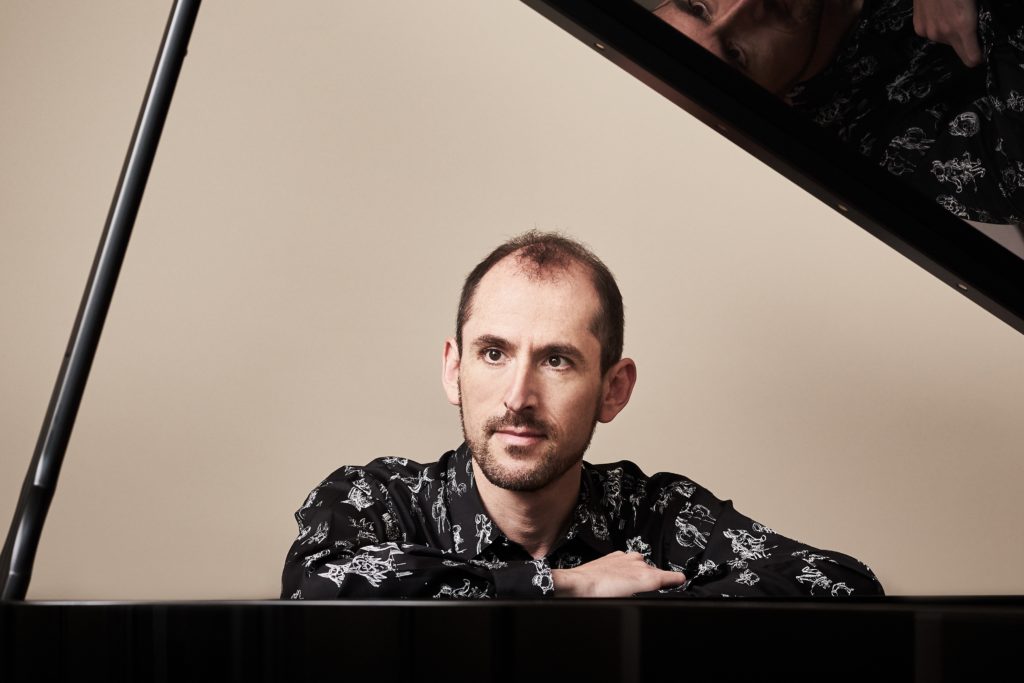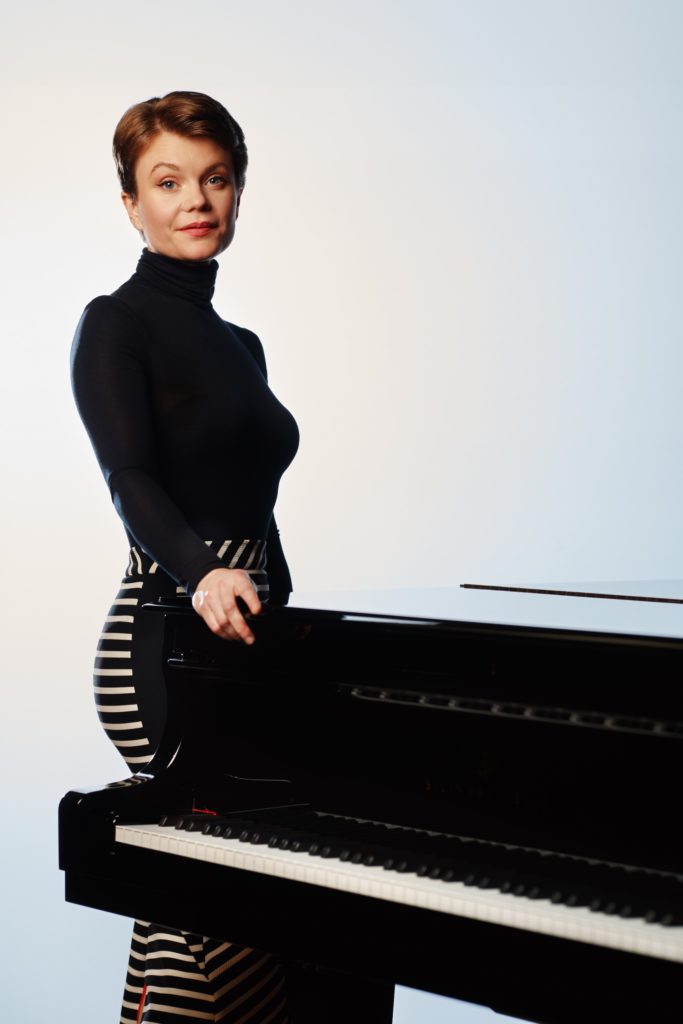
I THINK I should preface this review with a huge sense of gratitude to French musicologist Jérome Dorvial, who discovered and researched the music of composer Hélène de Montgeroult and introduced this remarkable body of work to pianist Clare Hammond.
Hélène de Montgeroult has a quite remarkable CV: an aristocrat who married a Marquis, carried out secret diplomatic missions to London, was arrested but kept her head by improvising an emotional set of variations on the Marseillaise. De Montgeroult was a radical and this was very evident in the advanced language and Romantic style of these studies.
The first study (No. 62) sounded Chopin-esque – a beautiful right-hand melody crossing over a rippling accompaniment, almost like a love duet. The sensitivity of Ms Hammond’s playing was exemplary.
No. 67 had echoes of Mendelssohn’s Songs without words. The swirling accompaniment feature was still present, but the soaring melodies were more animated. No. 104 was characterised by quickly articulated, rhythmically driven playing. To be sure, these works are pedagogical, but they are musical gems first and foremost.
No. 110 and back to Chopin. The shaping of the gorgeously ornamented bel canto melody was sublime. In No. 111 it was Schubert, for me anyway. Forceful, driving and a great way to sign off.
Dorvial described de Montgeroult as the “missing link between Mozart & Chopin”, and listening to this insightful performance of the studies, it is hard not to see why.
Despite declaring that she “once felt the soul of Beethoven in Bonn”, Cécile Chaminade’s music positively eschews any radical trends. She said of Debussy that “his music is to my ears . . . well, grey, a bit grey”. And yet I did feel the soul of Debussy in the opening Impromptu Op. 35, No.5.
And, when performed as wonderfully as this, I am sure he’d have been as thrilled as myself. The Etude Romantique, Op. 132 was a delightful rollercoaster ride full of joy and dazzling brilliance.
Here the influence of Chopin was so palpable, it could have been an homage to the great man, but I also heard a snapshot of Wouldn’t It Be Loverly? from My Fair Lady. Maybe.
What struck me when listening to Ms Hammond’s performance of the two Fauré Nocturnes was how technically demanding they are. In the Nocturne No. 8 in Db major the rhapsodic melody sang quite seamlessly in and out of all three registers, producing a gentle but intriguing experience.
The opening Nocturne No. 12 in E minor could not have been more different. Talk about the cry of a tortured soul, this was it. But you cannot have the dark – the anxiety was palpable – without the light, a sensual, rich-flowing tenderness, and, mercifully, Clare Hammond’s interpretation expressed both.
I have never heard Beethoven’s Sonata in C# minor, Op. 27, No.2 (“Moonlight”) live and Ms Hammond’s performance was just remarkable. It is easy to forget how radical the first movement is. It completely turns expectations, the laws of thermo-driven dramatic precedents, on their head.
We still get the same structural blueprint, but it is transformed into a Zen-like meditation. The playing was hypnotic and the thread mercifully maintained through the diminished 7th chords to the close.
The second movement Allegretto, which Liszt christened “a flower between two chasms”, was charm personified; the music danced. Ms Hammond’s adherence to Beethoven’s dynamic and articulation markings were integral to this. The syncopated rhythms of the Trio delivered contrast rather than any dramatic intent.
This, of course, belongs to the blistering helter-skelter drive of the closing Presto agitato with its now familiar sudden dynamic and expressive gear shifts. What really struck me here was the emotional control: nothing showy, flashy. There was an understated control.
The performance as a whole, and this final movement in particular, reminded me of the great Richard Goode’s approach to the Beethoven Sonatas. The youthful exuberance of the opening Allegro con spirito of Mozart’s Sonata in D, K. 311 was brilliantly refreshing.
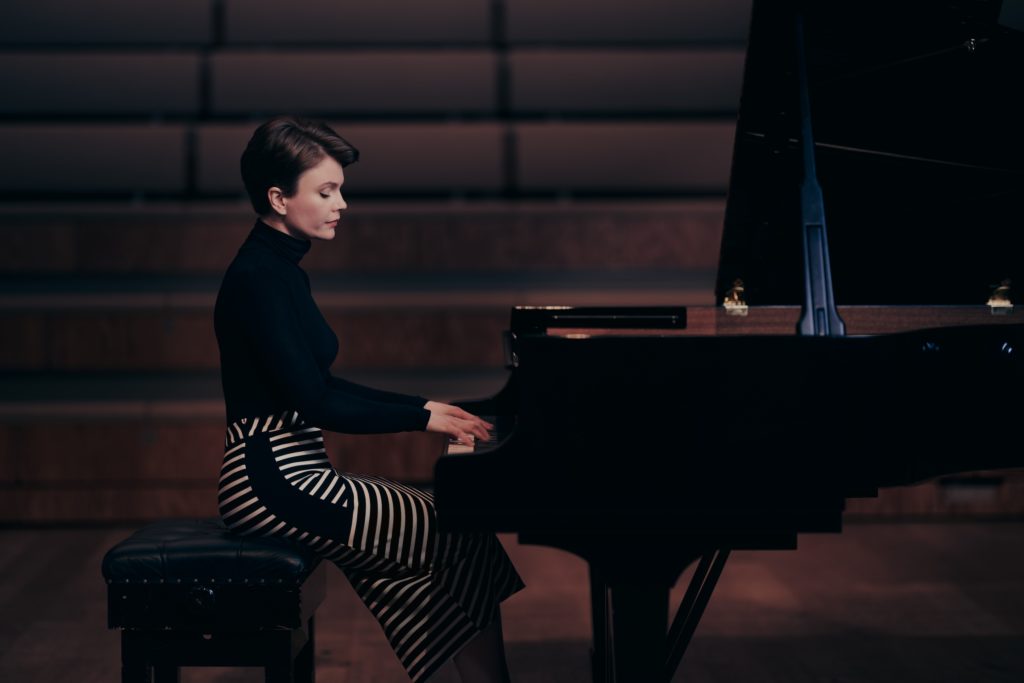
The playing was crystal-clear with the dynamic shaping of the driving semiquaver passages and the tapering-off of the musical phrases impeccably nuanced: a distinctive feature of the recital as a whole.
The central G major Andantino con espressione was just lovely: delicate with a dream-like quality. The longer Rondeau: Allegro returns to the exuberance of the opening movement. The young Mozart’s evolving powers of expression are evident here, as are the characteristics of the Mannheim style of composition: sharp dynamic and textural contrasts. The playing had a natural, instinctive flow; it oozed panache.
I was really struck by Clare Hammond’s performance of Clara Schumann’s Drei Romanzen, Op.21. They really are standout pieces; wonderfully crafted miniatures with a depth suggesting a larger canvas.
The influence of Brahms was obvious, particularly in the opening Andante with its ‘sombre Brahmsian melody’. By contrast, the short Allegretto: Sehr zart zu spielen did indeed bring out the delicate, playful nature of the ‘light-hearted semiquavers’. The closing Agitato proved to be a quite an energetic signing off. Impressive piece, impressive performance.
Then, out of nowhere, American composer Jeffrey Mumford dropped in to say hello. I really like Jeffrey Mumford, who says: “Being a black composer is itself a very subversive act because you offend both sides.” And I really like his music. The compositions invariably have beautiful aphoristic titles – such as tonight’s Of Ringing And Layered Space.
Clare Hammond performed the first of these five movements, Jenny – for pianist Jenny Lin, which delivered a static, dream-like atmosphere. Yes it was (quite) complex and modern – whatever that means now, but seductive and very accessible.
The recital closed with another set of five studies: Chopin’s Etudes, Op. 25, Nos. 1, 2, 4, 11 and 12. No.1 (‘Pollini’) is a study focusing on arpeggios and tone colour. Ms Hammond’s light-touch legato playing was, unsurprisingly, impeccable – the beautiful right-hand melody singing out of and with this gorgeous accompaniment.
No. 2 (‘The Bees’) came across buzzing with a continuous stream of rhythmic cross-accents – right-hand quaver triplets counterpointed with left-hand crotchet triplets and syncopation to great effect. The moto perpetuo legato playing, with very little pedal support, was flawless.
No. 4 (‘Paganini’) came across as delightfully quirky: left-hand leaping staccato quavers accompaniy the right-hand singing melody. In No. 11 (‘Winter Wind’) the lefthand was dominated by a dotted rhythm march with the right hand chromatically covering much of the piano keyboard. This was, amongst other things, an exercise in sheer stamina. It also (surely) referenced the famous Revolutionary Study.
The set and programme ended with the seriously challenging study No. 12 (‘Ocean’). As with No. 2, we heard cross-rhythms, syncopation, loud, dramatic sforzando accents. It came across as also richly contrapuntal.
Clare Hammond’s playing did indeed evoke the musical imagery of a storm, the pianist clearly relishing the unrelenting, almost elemental nature of this remarkable study.
Review by Steve Crowther
A footnote:
WE know that Liszt was a dedicated lover who had many relationships. We know he was attracted to Chopin’s lover, Amantine Lucile Aurore Dupin de Francueil, aka George Sand, which never bodes well. We know that Chopin had dedicated these Op. 25 Etudes to Franz Liszt’s mistress, Marie d’Agoult. And, after having just listened to Ms Hammond’s tortuous, passionate performance of the final C minor Etude, “the key of pathos”, I think I can see why.

